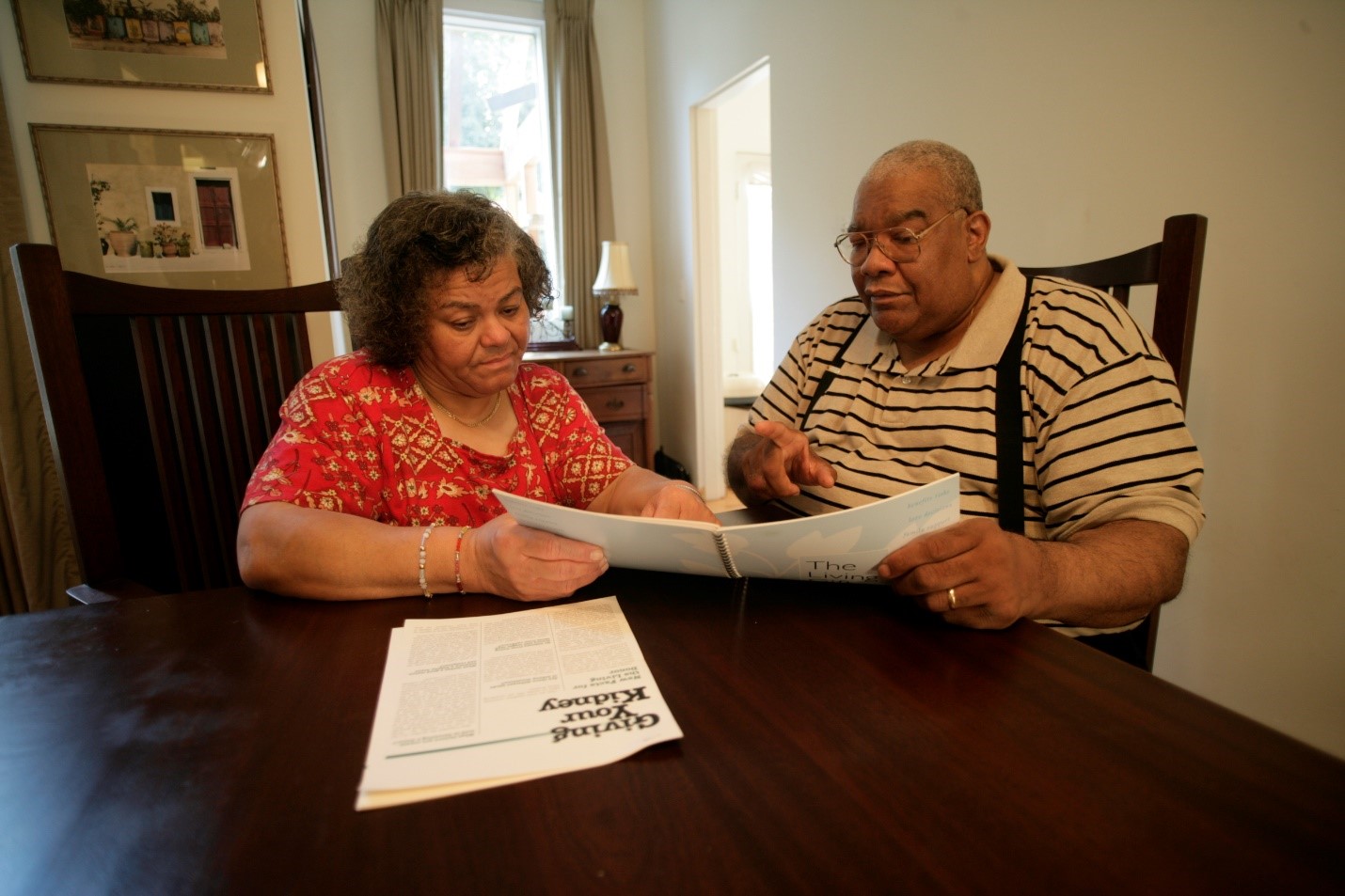By Lizbeth Alvarez, Research Associate
In the recent article, looking at “Removing Disincentives to Kidney Donation: A Quantitative Analysis” 1 McCormick et al., highlight the widespread agreement among researchers, physicians, and policy makers that removing financial disincentives to living kidney donation would increase the number of donors and be a fairer process. The article identified seven disincentives that living donors face, including:
- Cost of travel and lodging at a transplant center
- Loss of income due to kidney donation
- Cost of home / dependent care while donors are recovering from surgery
- Risk of dying from kidney removal
- Pain and discomfort of kidney removal
- Long-term health consequences of donating a kidney
- Concern that a relative or close friend might need a kidney in the future
The authors recommend expanding reimbursement of donation costs, income loss coverage, and removing financial disincentives. However, some of the recommendations by McCormick et al if implemented, could go beyond creating a financially neutral living donation environment into incentivization. In addition, the authors attempt to convert patient fear of dying due to transplantation or reduced quality of life from general decisional factor into quantified economic disincentives.
New and existing programs with the National Kidney Registry (NKR), United Network for Organ Sharing (UNOS), and other paired exchange organizations help to address some of the 7 disincentives, but program offerings and donor protections vary widely. For example, the NKR, which has facilitated 3935 kidneys paired donation (KPD) transplants, developed the Donor Shield and Family Voucher programs to overcome many of the disincentives discussed.
The National Kidney Registry medical board agrees that donation-related costs deter individuals from considering living donor kidney transplant (LDKT) and exacerbate disparities.2 It is important to reconsider the current policies of the National Living Donor Assistance Center that restrict which donor and recipient dyads are eligible for financial assistance.
The NKR Donor Shield program reimburses up to four weeks of lost wage ($1,500/week) for all donors and up to $2,000 for travel and lodging, and provides life and disability insurance for a year post-donation, legal support if donors face unlawful employment termination, experience a rise in insurance premiums, or lose health insurance due to donation, plus coverage for uncovered complications. This program is predicated on actual expenses, not theoretical payments for future incurred costs. The Donor Shield program expands coverage provided by the National Living Donation Assistance Center for donor and recipients living within 300% of the federal poverty guidelines.
While the OPTN and UNOS provide former donors who later develop end-stage kidney disease (ESKD) waiting list priority for a deceased donor kidney, the NKR Donor Shield program goes further by offering them a potential living donor kidney. 3 The NKR allows recipients, with early graft losses up to 90 days, placement at the end of future non-directed donor originated chains for a second transplant, if medically eligible.
To protect their family members in the case of future ESKD, NKR’s Family Voucher program allows living donors to name up to five individuals protection under a voucher for a future NKR LDKT. Only one voucher per donor can be redeemed. Family members with a voucher who subsequently become active transplant candidates are prioritized for a LDKT from the NKR at the end of a future chain. On average, one nondirected donor allows 4.4 recipients with incompatible donors to receive a KPD.5
Programs like these remove disincentives and protect donors without direct payment or tax incentives, and fall within the boundaries of the National Organ Transplantation Act. NKR’s innovations, if broadly adopted, could significantly increase the number of LDKTs performed and reduce the ever-lengthening waiting time for a DDKT.
References:
- McCormick F, Held PJ, Chertow GM, Peters TG, Roberts JP. Removing Disincentives to Kidney Donation: A Quantitative Analysis. Journal of the American Society of Nephrology. 2019;30(8):1349.
- Press Release: National Kidney Registry Improves Donor Lost Wage Reimbursement Program by Eliminating Income Restrictions. National Kidney Registry, November 21, 2019.
- Press Release: Transplantation: Funding Renewed for Nationwide Program to Reduce Financial Disincentives for Living Organ Donors. National Living Donor Assistance Center, October 15, 2014.
- National Kidney Registry. Info for Centers Medical Board Policies. National Kidney Registry website. https://www.kidneyregistry.org/transplant_center.php?cookie=1#policies.Accessed November 22, 2019.
- Flechner SM, Thomas AG, Ronin M, et al. The first 9 years of kidney paired donation through the National Kidney Registry: Characteristics of donors and recipients compared with National Live Donor Transplant Registries. American Journal of Transplantation.

